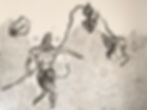
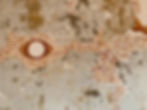
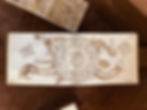

There are civilizations that have left many archaeological traces, these traces are visible in certain museums, in history books, in the minds to whom their history has been transmitted.
Other civilizations are lesser known, or totally unknown because their histories have been forgotten, erased, submerged under water, or because their histories are passed down in some other way. Aïcha Snoussi and the LIXE archaeological mission are updating one of them: The civilization of the Tchechs, a queer, African, nomadic civilization, traces of which have been found off the island of Zembra in Tunisia, as well as on the coasts of Ouidah.
This civilization has a set of practices, rituals, powers and cults that the Lixe mission perpetuates through this exhibition in a duty of transmission to future generations. This transmission is done through gestures, installations, devices, sounds, experiences and a set of arrangements that activate this invisible memory.
Civilization is attached to the worship of the sea, as well as that of the sun. It has a particular language, one that cannot be read with language. Its color is vermania, blue-green, and the four elements are omnipresent. The Tchechs are neither male nor female or male-female. Bodies are infinite possibilities just like sexual practices around objects. Each space of this place activates a particular practice, thousands of years old, but which only takes shape through elements of the present. This process is the key to passage.
The history of the Tchechs takes shape and life through the objects presented. Each room tells this story, in a different form than that of the words in a book. Lixe and the artist were receptive bodies and transmitters to deliver a 3000-year-old message. A message that comes from the depths, that reads between the layers, in the cellars. A queer message transmitted by our ancestors, lovers between the shores.

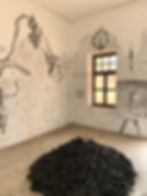
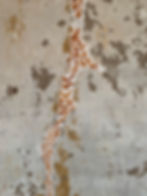

"A practice of the underground, the hidden, the invisible already crosses my work in an archaeological approach. Around reinvested objects, places and memory, open and dug notebooks, encyclopedias returned like an excavation site, engraved bones. There is a desire to cross time in a non-linear direction, towards the depths. Go from point zero, towards -1, -2, -99. Slipping in the earth, in the paper, in the history, in bodies."
Aïcha Snoussi
Born in 1989, in Tunis. Lives and works in Paris. Aïcha Snoussi is a graduate of the Higher Institute of Fine Arts in Tunis and the University of the Sorbonne. Trained as an engraver, drawing in black ink is at the center of her experiments. From in situ frescoes to notebook installations, drawing is thought of as a tool for excavation and deconstruction - developed around queer and feminist fictions. Anticodexxx, the book of anomalies or even undefined scrolls are anti-knowledge projects that question established norms and dominating thought by creating other possible imaginaries.
By resorting to fiction, to the functions of the encyclopedia and to in situ experimentation, the drawing is thought of as an operation which would attempt to carve up things and anchored knowledge, such as the norms of gender, body and sexualities.
